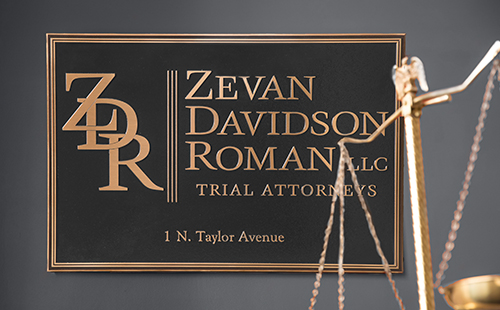5 Reasons an Attorney May Turn Down A Medical Malpractice Case During the Legal Intake Process
Being wronged by someone who was responsible for your physical and emotional well-being is extremely overwhelming and exhausting. When someone approaches us with a medical malpractice case, our hope is that we can help you and your loved ones navigate the complexities of the legal system. However, there are times when we are unable to help with your potential claim and will decide to decline a medical malpractice case during our legal intake process.
Today, we are sharing what our standard legal intake process looks like and the five reasons why we may decide to turn down a medical malpractice case.
What is the legal intake process?
Prior to taking on a medical malpractice case, our attorneys and staff will conduct a thorough legal intake interview. Much like a job interview, this process allows us to get to know you, the injuries you obtained and the situation surrounding your case. This process requires our intake personnel to conduct a detailed interview about your situation, where we ask you to provide as much information as you can about your potential claim. Our attorneys then review the information to decide whether we believe it is appropriate to further investigate your claims.
5 Reasons Why the Case May be Turned Down
We recognize that each case that comes across our desks is unique and deserves a thorough review prior to investigating the case. Here are five reasons why we may turn down a medical malpractice case during the legal intake process.
1. There is no proof of malpractice.
In order to have a strong medical malpractice case, a patient must be able to prove their doctor was negligent during their care. A lack of proof may deter a medical malpractice attorney from taking on your case. There are four key elements a patient must be able to prove in order to have a strong case for medical malpractice, including:
- You are able to provide proof of the patient-physician relationship. This can be shown through medical records and other patient-physician documentation.
- There is a breach in the standard of care. A physician’s standard of care requires them to provide the care that any reasonable physician would provide in that same circumstance. For example, a breach may include a surgical error, misdiagnosis, prescription malpractice, or failure to follow-up on a specific treatment.
- Your injury was a direct result of the breach. You must be able to prove that your injury resulted from a lack of care, failure to treat or failure to diagnose properly.
- Damages are present. You must be able to prove that your injury resulted in significant damages such as lost wages, time away from work, medical bills or noneconomic damages such as pain and suffering.
2. It is difficult to show causation.
Causation is the cause and effect of one action and its result. In order for a medical malpractice case to be viable, a patient must be able to prove their injuries and respective damages were a direct result of a physician’s negligence. If there is no evidence to support that your doctor provided substandard or inaccurate care, a medical malpractice attorney may not pursue your claim.
During the legal intake process, we will be able to help you determine if the injuries you suffered are linked to a physician’s negligence. For example, if your doctor misdiagnosed a form of inoperable cancer and it was found later, there may not be a case for negligence if the care did not change your probable outcome.
3. Defenses exist against the violation of the standard of care.
In any procedure, an abnormal outcome does not necessarily mean a physician neglected his or her standard of care. Each medical procedure has their own unique level of risk — meaning your doctor could provide excellent care and a complication may still arise. If an attorney believes your case does not have a probable standard of care violation, they may turn down your case.
4. The damages are less than litigation costs.
Sometimes medical malpractice cases may be winnable, but the litigation costs may exceed the damages that you incurred from your injury. In these cases, a medical malpractice attorney may elect to not take on your case since the litigation costs would go over the amount you may win in court.
Additionally, Missouri has a draconian damages cap in medical malpractice cases — limiting the amount of noneconomic damages a patient may receive even if their physician committed malpractice. As of 2023, the law states that the cap for non-catastrophic injuries is $457,000 and the cap for catastrophic injuries including death is set at $800,000.
During the legal intake process, our attorneys will estimate the average cost of your damages, calculate the average attorney and litigation costs and other fees associated with your case. If the estimate exceeds the litigation costs, they may not take on the case.
5. The statute of limitations has expired.
According to Missouri’s statute of limitations, a patient has two years from the date of the negligent act to file a complaint with Missouri courts. There are a few exceptions to this rule and they include:
- Foreign Objects. If a foreign object such as a towel, sponge or other medical instrument is found inside a patient’s body, the two-year time period starts when the foreign body is discovered.
- Failure to Inform on Medical Results. If there is negligence with medical results, the two-year time period begins on the date of discovery of the negligence or the date on which a patient should have been informed.
- Medical Malpractice Cases for Minors. For minors, he or she has until their 20th birthday to bring a medical malpractice claim forward. This happens often in birth injury cases.
An attorney will be able to help you evaluate the validity of your claim through the legal intake process. If they determine the statute of limitations has expired, they may not take on your case.
Begin the Legal Intake Process with ZDR
Our experienced medical malpractice attorneys understand the confusion that comes after any form of physician negligence. In those moments of uncertainty, we will help you identify the best path for your case. While we may not be able to take every case that comes to our attention, we treat every consultation with the utmost professionalism and sincerity.
If you believe you have a medical malpractice case, contact our attorneys today to start the legal intake process and evaluate your case.
Missouri Medical Malpractice Lawyer
If you have suffered as a result of medical malpractice, contact our legal team right away. Waiting to seek legal representation can prevent you from filing a claim and receiving the compensation you deserve.
Contact Zevan Murphy today.

